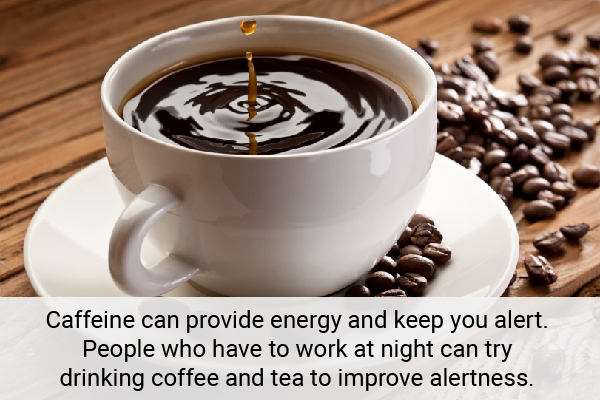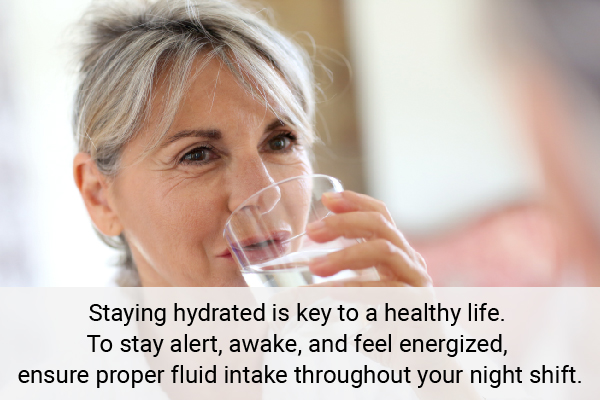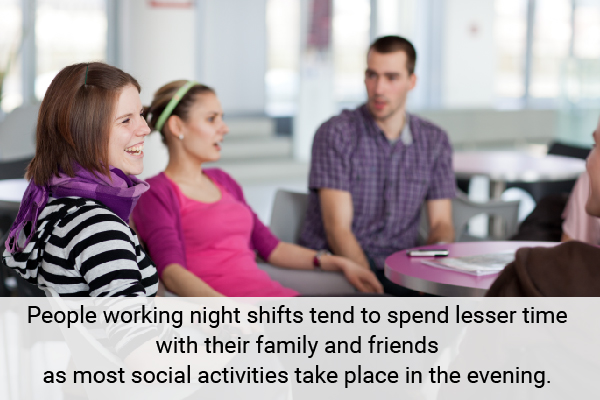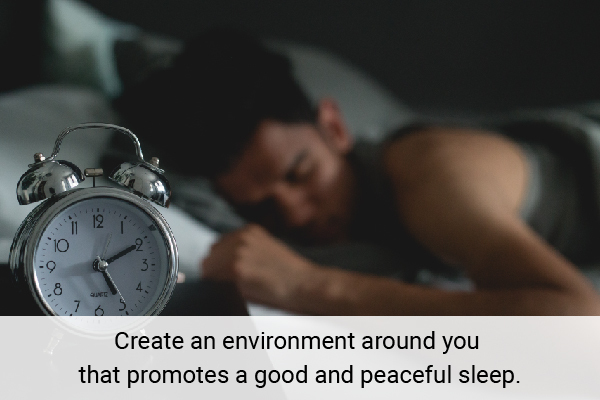In this article:
Many businesses are growing day by day, and some of them require employers to work at night.

Night shifts are mostly needed in the fields of medicine such as patient care or emergency operations and in the security services industry. Many people agree to work at night for various reasons, such as to realize their dreams and to earn a good stable income.
Human beings are diurnal, meaning they sleep at night and work during the day. So, you can only imagine the toll night shifts have on human health. (1)
This article will present the risks associated with working night shifts and how you can maintain your overall well-being while working at night.
How to Stay Healthy on Night Shifts
It is always important to prioritize your health and well-being. Here are a few tips that can help you take care of your health if you’re a night shift worker.
1. Follow a proper schedule
The body is designed to sleep at night. Suddenly changing your sleep pattern may have some effect on your body. Nevertheless, if you set and follow a proper sleep and work schedule, your body can get adjusted to the new hours. (2)
Sleep properly during the daytime before leaving for work at night, to prepare you for the long working hours. You can also try napping during your night shift to improve performance and reduce tiredness after work. (3)
2. Be mindful of your caffeine intake

Caffeine can provide energy and keep you alert. People who have to work at night can try drinking coffee and tea to improve alertness.
But remember to always drink in moderation, not more than a cup at a time and not more than two in the entire duration of the shift. (4)(5)
Drinking too much coffee or tea at work, can cause dehydration and cause trouble sleeping after work. (6)
3. Follow a healthy diet
Having a diet that is high in trans-fat and sugar can cause increased sleepiness. Therefore, such a diet isn’t suitable for night shift workers.
An unhealthy diet can also cause stomach discomfort that can hinder one’s work. (7)
Consume a well-balanced healthy meal before your night shift. Pack small nutritious snacks such as fruits, a vegetable salad, nuts, and seeds to consume when you feel hungry during your working hours.
To save time and energy, you can pre-plan your meals by preparing a healthy diet chart that covers all nutritional aspects of a well-balanced diet. Research has shown that healthy dietary practices, with other lifestyle interventions, can reduce the risk of chronic diseases in shift workers. (8)
4. Drink plenty of water

Staying hydrated is key to a healthy life. To stay alert, awake, and feel energized, ensure proper fluid intake throughout your night shift. Your body feels fit and incredibly healthy when you drink plenty of water. (9)
5. Exercise regularly
You have heard this a thousand times before but regular exercise can do miracles for your health. Exercising daily is essential for not only your physical but also mental wellness. Moreover, physical activity makes you feel energized and improves performance during work hours. (10)
If you can’t find time to hit the gym, you can try jogging every day for 15 minutes at least. Going hiking, swimming, or playing a sport with friends also works just fine.
Studies also show that brief exercise is great in lowering the risks of chronic illnesses associated with operating night shifts. (11)
6. Avoid drinking alcohol
A study has shown that people who work night shifts suffer from poor sleep quality and have higher alcohol consumption than daytime workers, putting them at risk of alcohol abuse disorder. (12)(13)
You should avoid drinking too much alcohol. It disturbs your REM sleep and makes you feel not so fresh even after sleeping for long hours.
Excessive sleepiness in night shift workers may also cause an increase in their overall consumption of alcohol. (14)
7. Align with people around you

People working night shifts tend to spend lesser time with their family and friends as most social activities take place in the evening. (15) You need to make sure your friends, family, and others you care about are updated on your work schedule and plans.
This will help them plan their meals and other activities around your work so you can join them. This will enable you to maintain a good work-life balance.
8. Nap whenever you can
They are called power naps for a reason! Research has shown that napping during night shifts can be beneficial, especially for medical workers as it reduces drowsiness. (16)
If you find time during your breaks for a quick 20-minute nap, take advantage of it. This will keep you alert, awake, and focused for the rest of your night shift. Plan your naps so they do not hinder your work.
9. Practice self-care
Night shifts are known to have a negative impact on your mental wellness. Practicing activities that help promote mental well-being will be helpful in such cases. (17)(18)
Spend some time doing meditation, yoga, and other therapeutic art forms that will help you feel good and calm.
Research has shown yoga can be beneficial for alleviating the stress experienced by nurses due to working at night. Restorative yoga can be used to ensure you are mentally fit and stable throughout your night shift. (19)
10. Bedroom design

Create an environment around you that promote a night of good and peaceful sleep. A surrounding as such, according to studies, is known to improve your sleep quality and also ensure you fall asleep quickly. (20)
So, when you’re ready to sleep, close the blinds and draw the curtain to avoid any flow of sunlight from the windows. Don’t spend too much time using your phone or watching TV.
Several studies have shown that blue light emissions from phones and other devices may affect and interfere with sleep. (21)
Health Impacts of Working Night Shifts
Here are some commonly seen symptoms of working night shifts: (22)
- Increased drowsiness and sleepiness
- Digestive troubles
- Increased risk of weight gain
- Lack of concentration
- Low energy levels
- Poor quality of sleep
- Depression
- Frequent mood swings
Most-Asked Questions About Working Night Shifts
What effects do night shifts have on hormones?
Studies have shown that night shift workers have decreased melatonin levels, which normally increase at night.
There is also evidence suggesting increased levels of reproductive hormones (LH and FSH) and a higher risk of breast cancer in women who work during the nighttime. (23)
Is it true night shift workers have high risks of bone diseases?
Four studies have investigated the association between the system of work and bone mineral density or fracture risk among workers.
The findings of three out of the four studies support the hypothesis. However, none of the studies investigated a potential relationship between night shift work and bone turnover markers, (24) so more research is still required.
Also, researchers share that working night shifts put a person the risk of vitamin D deficiency, which can affect bone health. It is therefore very important to go out and get some sun during the day. (25)
When should I talk to a doctor?
If you have started to work night shifts, you are prone to experience symptoms such as headache, nausea, and insomnia, but if these symptoms don’t settle as you adjust to your new routine, you should go to a doctor and seek advice. It usually takes a month for the symptoms to stop. (22)
Final Word
No amount of pay or salary is as important as your health. Your body has a naturally developed biological clock that keeps you active during the day and promotes sleep at night. This is known as the circadian rhythm.
It tells our brain when it’s time to lie down and take some rest at night to wake up fresh and energetic the very next day. It is also important in making sure that you have a healthy body. It keeps your bodily functions well maintained.
A schedule as such also helps in regulating digestion, body temperature, and heart health. All these get a little disrupted with night shifts. So, without proper care and health management, night shifts can cause various health issues.
It is, therefore, necessary that you maintain and prioritize your mental and physical wellness while working night shifts.
- Was this article helpful?
- YES, THANKS!NOT REALLY


